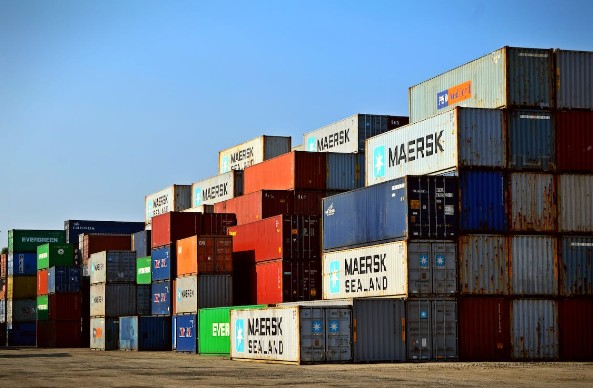Logistics Start-Ups: Challenges and Solutions To Financing Options
Logistics businesses are the ‘backbone” of virtually every other business. These businesses facilitate the movement of goods to their respective destinations. The importance of logistics companies was highlighted during the COVID-19 pandemic when the industry leaders managed to keep their businesses afloat and survive. According to predictions, this industry is set to see growth between 2023 and 2028.

(Image source: https://www.pexels.com/photo/cargo-container-lot-906494/)
Financial Challenges Faced By Logistics Start-Ups And Their Solutions
Due to rising fuel prices, tariffs and duties and changes in global GDP, logistics start-ups may face several challenges from a financial perspective. We will discuss some of these challenges as well as the solutions to them in the following paragraphs.
Cash Flow Management - Invoice Finance
The logistics industry has historically been a high-volume business. When customers are late to pay their invoices, this can lead to many issues arising out of the cash flow perspective. Collection can get delayed depending on several factors- such as lost documentation or damaged shipment.
Invoice finance can help maintain cash flow and help the business grow. This financing option can free up internal capacity, making the company allocate more resources to business growth. Lenders are also more inclined towards buying invoices from commercial customers, which suits logistic start-ups better. Matching payment terms with customers and vendors will speed up the process and help maintain cash flow.

(Image source: https://www.pexels.com/photo/men-going-around-a-warehouse-1797428/)
Bad Debt - Small Business Loans
The logistics industry is characterized by small proprietors who are thinly capitalised. Unplanned damages and delays in shipment can lead to bankruptcy. Business owners need to understand this risk and work towards reducing their exposure in this regard. In this regard, bad credit startup business loans can come in handy. Most logistics start-ups will not have an impressive trading history, and these loans do not have very strict requirements related to that.
Small business loans offer a great degree of flexibility and start-ups can take advantage of the same. These loans provide that financial boost which can be used to make the most out of available business opportunities. Interest rates are low, and there are no hidden fees. Repayment is usually in the form of monthly instalments, but this depends on the loan amount and the rate of interest.
Profit Management - Employee Performance Management
Typically, logistics companies have very low gross margins and bottom-line profit margins. This is why the business must operate as efficiently as possible. This includes effectively managing capital equipment as well as employees. The employee turnover rate is very high in this industry, which can be quite costly for start-ups. It is important to hire the right people for the right position and keep employees motivated and productive. Having a solid employee management process can impact the bottom line.
Moreover, it is also very important to go over insurance coverage to reduce the risk of losses.

(Image source: https://www.pexels.com/photo/man-in-bubble-jacket-holding-tablet-computer-4484078/)
Record Keeping - Good Accounting System
Reporting and record keeping can be a significant challenge for logistics start-ups, especially with the small number of owner-operators and trucking companies. Many of these owner-operators do not have the processes or systems in place to provide accurate and timely information about their business or their shipments. This can present challenges to the logistics businesses they work with. Tax reporting could be inaccurate or get delayed, hence, these start-ups can run into numerous issues.
Therefore, it is important that businesses proactively manage their exposure in such areas by maintaining a good accounting system with records of all sales, as well as detailed information on customers and vendors including business name, address, tax records and license information. Such issues can be time-consuming to resolve and lead to hefty fines on the part of the logistics business.
In Conclusion
The logistics industry is an exciting, fast-paced, cyclical industry which also happens to be capital-intensive with many small and large participants. There are numerous industry challenges to reaching the objectives of a business, as we have discussed. Financing options can assist logistics start-ups in evolving into financially stable businesses. Employee management systems can help reduce turnover rates in the industry and lead to increased efficiency in the workplace. Good accounting systems can help maintain clear records of all transactions. Business owners who can effectively tackle these challenges can improve their bottom line significantly.
